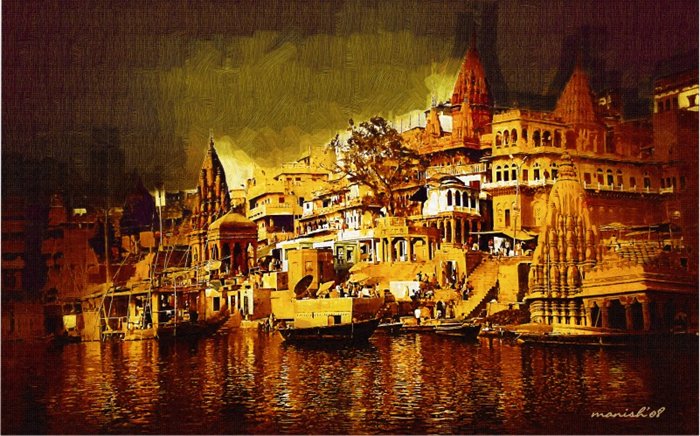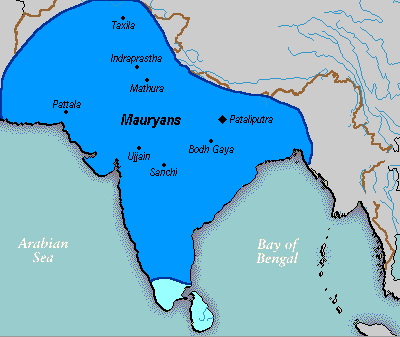Preface
Hello All,
I bought EU3 over the weekend and absolutely loved it. I am so excited that I am going to write my first AAR. I will be writing this AAR in real-time (as in while playing the game). I will play as Bihar, a small Hindu nation in Northern India (I have provided the historical context below). I am especially excited because I am from the modern Indian state of Uttar Pradesh, specifically from the province represented by Allahbad in the game.
Being my first AAR I want to welcome everyone for feedback on the game, my writing, and any other comments. As I mentioned, I have just bought EU3 and would appreciate guidance on handling the complexities of the game.
A quick note on the writing style: I will write every 10 (game) years, imagining that as part of a decade’s census, a government historian is writing about the events of past 10 years. The introduction is the only exception in that the introduction is written from the perspective of my first monarch’s teacher. He presents historical context and the general goals to the first ruler. Even though I foresee bias in my AAR (e.g. hatred for Muslim nations), it does not reflect my personal views. The historical context is mostly factual, except the bias present when talking about the invaders.
From time to time, you may see side notes highlighted in red. These, I hope, will be few but will help provide context or clarity as needed.
With that said, thanks for reading and hope you enjoy.
PS: The below legend may be useful.

Ekant Ka Sapna (Dream of Unity) (Historical Context)


Bihar is a land of fertile soil, plentiful monsoons, with a rich religious, cultural, and economic history. Maharaj, as you sit in the throne that has supported some of the world’s greatest Maharajas of the, you must guide your people to triumph and re-achieve the dream of uniting Hindustan.
Dharti aur Dharma (Geography and Religion)
Geographically, the lands are protected in the North by the mighty Himalayas and in the West by the Bengal Jungles. The plains are watered yearly by the monsoons that allow farms to prosper and provide much needed relief against the blazing heat. The Ganges River running through these lands have provided the people a means of navigation and trade since time immemorial.
With plenty of food and natural protection, the people have focused on spiritual and economic development. Kashivishwanath (in the province of Allahbad) is the holy city for the millions of Hindus all across the sub-continent. The city is said to have been founded by Lord Shiva himself and is known as the “City of the Dead”. In Hindu tradition, one’s ashes must be scattered in holy waters of the Ganges to achieve Moksha and millions of people make the pilgrimage to find their final resting place in this city, ensuring that trade prospers in the region.
Bihar is also the birth place of Buddhism which has influenced much of East Asia. Founded by Prince Siddhratha the Gautham Buddha, who renounced his kingdom, Buddhism is a perfect example of how Bihar personifies the belief in spiritual fulfillment and coexistent living.
Pichle Rajya (Historical Dynasties and Empires)
While peace is priority, the land has also been home to some of the largest empires in the world’s history. Bihar was home to the Magadha Empire, which dominated the sub-continent for over 1,000 years. With its capital in Patliputra, Bihar’s capital today, the Mauryan Dynasty (322-185 BC) was perhaps the first to give birth to the idea of a united Hindustan. Their empire stretched as far as West as Persia and as far South as Ceylon. Using their vast resources, the Mauryan Dynasty greatly improved the infrastructure and life quality of Bihari citizens. They also invested in the sciences and the arts heavily. In fact, one of the most important mathematicians, Aryabhata, who is credited with inventing the concept of zero, called Patliputra his home.

Mauryan Empire at its Height
Following the Mauryans, various other dynasties (the Sunga, the Gupta, and the Palas), with varying success, have called Bihar their homes. The most notable of these was the Gupta dynasty that also conquered many parts of Hindustan and vassalized almost all of it. The Gupta Empire is considered by many scholars to be the "classical age" of Hindu and Buddhist art and literature. The Rulers of the Gupta Empire were strong supporters of developments in the arts, architecture, science, and literature. The Gupta Dynasty also left behind an effective administrative system. During times of peace, the Gupta Empire system was decentralized, with only taxation flowing to the capital at Pataliputra. During times of war however, the government realigned and fought its invaders.
Akranamkari (The Invaders)
Unfortunately, after the Gupta Empire, the land has seen many invaders. First, the Huns from the North pestered Biharis and Hindustanis across the sub-continent. These invasions were followed by the Pashtuns from Afganistan and Turkic invaders from further West. While the invaders at first were mostly interested in looting and pillaging, the vast resources offered by our lands are attracting some of these invaders to stay.
The invaders bring with them diseases, put a strain on our resources, force our people to fight their battles, and, most importantly, punish those who worship the Vedic Devas (Hindu Gods). The invaders follow Islam which promises glory and salvation in battle. They are a violent people and unlike us do not believe in coexistence. If they came as guests, we would have welcomed them with open arms. But they came first as robbers and now they mean to kill us…
Lakshya (Goals)
Maharaj Mubarak Shah Sharqi, you follow in the footsteps of Asoka the Great and Chandragupta Maurya. These great kings once dreamt of a united kingdom of under the Bihari rule and you and your government must try to achieve the same dream, once and for all.
However the challenges you face will not be easy. Never before have we as a people dealt with a more persistent invader. Our allies are few and weak. Our people, scared of persecution, are defecting to Islam. The journey to unification will be long and hard …but it is our destiny. Ekant Hamari Ho Gi!!
To get you started, I have outlined priorities that need your immediate attention. To the East and West we are surrounded by Muslim enemies who would destroy us without a thought. Your priority should be to subdue the Bengal kingdoms in the West while defending the encroachments by the Delhi Sultanate. We should also strive to befriend the nearby Hindu kingdoms, especially the Rajputana kingdom.
We are also a trading nation. Bihar is a center of trade where much of east Hindustan trades. We must secure and capitalize this position. Invest in trade technologies, enact policies to attract merchants, and most importantly establish a dominant trading position in Bihar. Also look to expand trade networks in Kutch and Malacca as these will be vital to your treasury.
If you can secure your borders and your trade, my king, our nation will be in a strong position to expand and rid the Islamic threat forever. We can then turn our attention to collaborative incorporation of the other Hindu kingdoms that should rightfully be part of Bihar.
Last edited:








